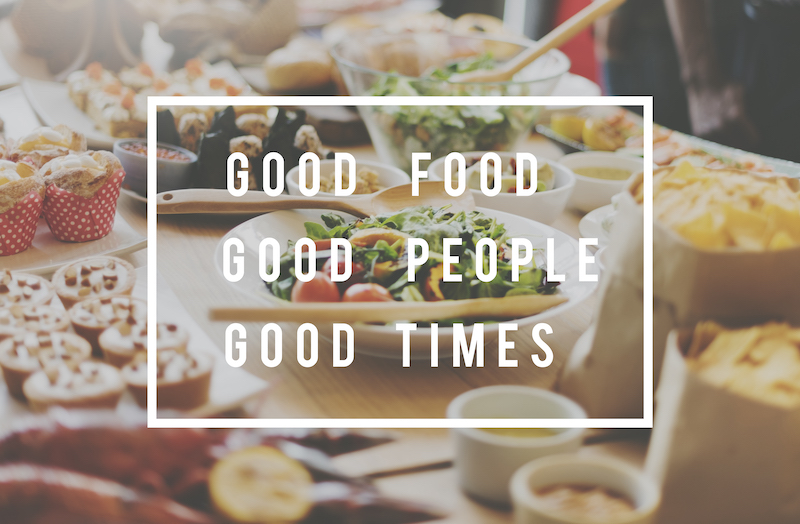
by Cindy Heilman | LeaveBlank

It is the Power of One theory. Twenty years ago, a photo of cellist Vedran Smailovic sitting in the bombed-out National Library in Sarajevo brought beauty in the middle of the devastation of siege.
That strong but reassuring picture illustrates how one person can make a difference and influence others to let go of their fears of war.
I’m thinking of your staff.
Each staff member can bring a feeling of belonging, joy, contentment, security, and a shared life to each person they contact daily. Much happiness spreads around your community with little effort but intentional kindness.
In return for the kindness they share, they receive joy, a sense of belonging, confidence, work security, camaraderie, and a sense of who they are and the weight they carry.
It is time for company executives to notice the basic tools they can utilize in their community. True leadership allows your serving staff to raise their potential and improve the dining experience for everyone. Success awaits in this detail.
This all brings attention to mealtimes being your residents’ most important times of the day. We know how elders take time to prepare for it and look forward to this social time of the day. It is so much more than satisfying a hunger for food.
Meeting new people is a chance to chase away any loneliness that may linger. That is an opportunity for your food servers to orchestrate a social moment. They get to chat and get to know the residents. As a result, they can pair up with people who may be too shy to sit at a table without being invited.
Person-centered care is about the staff, as they are the service providers who deliver the care.
Through the Kind Dining® training curriculum, serving staff can grow their skills by changing their mindset, skill set, and, ultimately, their everyday behavior.
Their lives will be improved while improving the lives of everyone around them: coworkers, residents, and whoever is at hand. It takes a desire to uplift one’s life, which one can do through training and practice.
Discussion afterward is highly recommended. It keeps the training close in mind, and the skills will follow.
Who doesn’t want a better life and a workday you love, full of the kindness of friends and coworkers?
Be ♥ Kind Tip: Mealtime: an opportunity for serving staff to orchestrate a social moment.

by Cindy Heilman | LeaveBlank

Charles was having an impromptu and informal lunch with two colleagues in a private dining room at the Senior Living Community. He was anxious to hear the first results of the new training they began for all employees, including their leadership staff.
“Well, what are the murmurings? Has there been any rumbling in the trenches?” Charles was anxious to hear if his guidelines were adopted by his most recently promoted leadership team now that some time passed. “Has the team used intentional, collective consciousness to guide our food servers? Have they passed intention-setting to the food-serving teams to accomplish our goals? I want to know if our teams are showing signs of having more confidence. Do they collaborate more at all levels? I expect less conflict among all our employees. Has that happened?”
Robert spoke up first. “After our training sessions, we shared your strategies, including everyone’s input to succeed. We stressed the importance of how their work intentions, positive attitudes, and the changes they create are the strengths of our community and our company. We discussed goals and how the importance of their work is based on results. We have created colorful charts to show the progress of all of us working together with intention. They are displayed so all can see them and take pride in moving forward. We’ve opened a clear communication method in all work areas to emphasize that we are all moving toward our goal. Anyone who wishes to be heard is listened to on an ‘always-available’ basis.”
John added, “We have also let it be known that we expect this cooperation from everyone as it impacts the results. Our employees were interested in knowing how decisions are made and how those decisions come from their work experiences. Consideration is obvious. Our teams show excitement in seeing our progress through the charts. They also enjoy the team gift cards we use as rewards.
Charles wrapped the conversation, “The reality of leadership is complex. It sounds like the potential expected of you both shows in your early results. You are managing new roles with vital collaboration and commitment and building a culture of organizational intention that requires encouragement and open communication. Now, let’s have dessert.”
Kind Dining® training helps in these areas of organizational skills! Inspiring staff to find a new sense of purpose and embracing a community’s common goal of rallying around the dining experience is basic.
Be ♥ Kind Tip: Train your leadership staff on the complex role of valuable administration.



